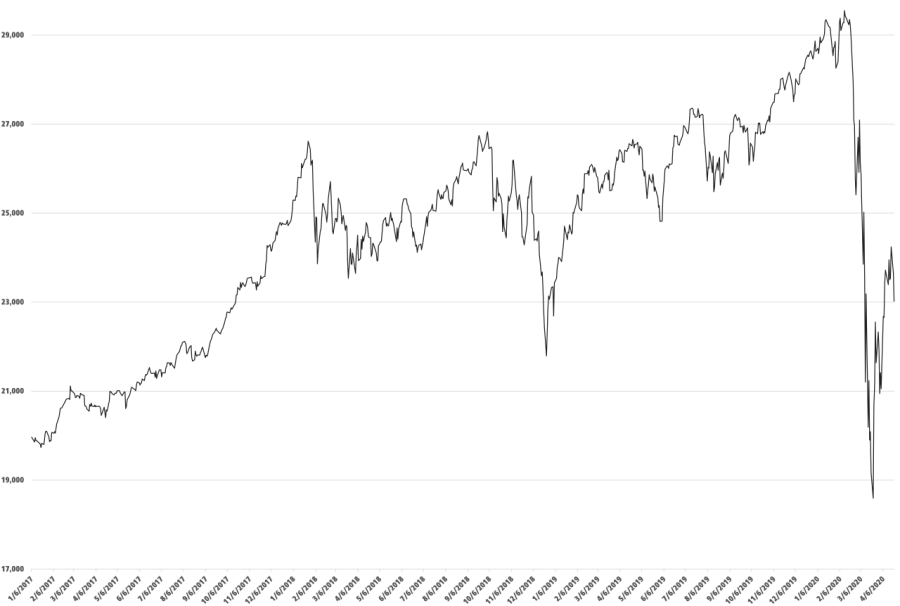The World Economy’s Response to COVID-19
April 28, 2020
Social distancing. Quarantine. Stay at home order. Zoom. All these terms have rapidly wormed their way into everyday vocabulary as the pandemic worsens and grows to affect everyone. This includes the whole world effectively in quarantine, school campuses shut down, and physical stores closed. Restrictions vary in severity from country to country. For example, the United Kingdom and Italy have more restrictive policies in place than the U.S., but regardless, this pandemic and the subsequent governmental reactions affect every country. As was seen with WWI, The Great Depression and the ‘08 Financial Crisis, when people are significantly negatively affected, the economy mirrors that in the form of losses, sharp downturn of projections and worries about it’s future vitality.
The damage to the US economy is readily apparent and significant. According to Morgan Stanley, the economy will shrink about 38 percent for the second quarter and 5.5 percent for the year as a whole. To put that in perspective, the U.S. economy has not shrunk as a whole for more than a decade, and this level of shrinkage is unprecedented in the post WWII era. Throughout the end of 2019, business analysts and pundits wondered if another recession like 2008 was on the horizon, yet the economic turbulence being experienced in the U.S. economy now is much bigger than the issues of 2008 ever were.
On a micro level, the cause for this recession is one that many Americans are experiencing everyday. People are losing their jobs or being furloughed and are being forced to consider a future in which they must be more frugal. On top of this, many stores have been shuttered for the time being, and consumerism is a very large part of the U.S. economy. Even online retailers like Amazon have been under stress as a result of the pandemic. The company is experiencing slower than usual delivery times, allegations of misconduct and unsafe conditions in their warehouses, as well as general dissatisfaction from their workers. All of these things contribute to a lack of cash flow in the economy, and cash is the lifeblood of any economy.
The U.S. is certainly not alone in its economic suffering. The whole world faces the same problems. Some countries have attempted to take drastic measures to stimmy the bleeding, such as France, which has decided to fine Amazon for shipping any non-essential item so that essential items would be shipped quicker. Amazon chose to close their warehouses for the time being. This was in response to France’s new law and to American politicians’ criticisms about the company’s safety policies in French warehouses. Amazon filed an appeal in response to France’s new law as well.
The global economy is attempting to weather the storm, but it too is shrinking. According to the International Monetary Fund (IMF), it is expected to shrink 3 percent in 2020, which is roughly opposite of the 3.3 percent growth it was projected to see before this pandemic. This is not a problem that will go away any time soon. As long as the world is on lockdown, the economy will continue to suffer. Projections are changing rapidly and the economy will follow the news about coronavirus, be it positive or negative, for better or worse, the economy of America and of the world is tied to this pandemic.


